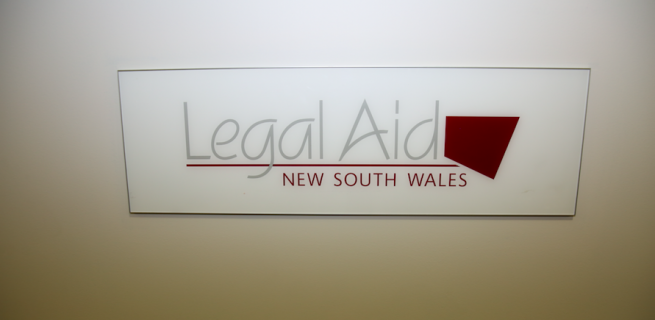Legal aid funding has been dwindling since 1997; but this year, the cuts are really being felt.
According to Fairfax media, defence funding has been cut for at least 12 serious criminal cases in the last few months.
The budget has cut millions from Legal Aid Services, as well as from Indigenous Services.
This means that people who are accused of serious crimes and facing the possibility of lengthy periods of imprisonment could have to wait many months for funding to be approved, or even be left without any legal representation at all.
As of December 2014, Legal Aid has said it will no longer be funding Commonwealth trials of 10 days or more for cases listed to start after April this year.
They point out that each one of those cases could chew through a substantial portion of their allocated annual budget.
These cases are normally the most serious ones, where representation by good criminal defence lawyers is the most important.
Can everybody get Legal Aid?
The answer is a resounding ‘no’.
Legal aid is strictly limited to applicants who meet the “means test”. This means that only those who have very limited income and assets will normally qualify.
There is also a “merits test”, which says that only those who risk being imprisoned or can otherwise show exceptional circumstances will qualify.
Don’t we have a right to legal representation?
Australians have the right to hire any lawyer of their choice.
But there is no right to have a lawyer provided at public expense, as is the case in other countries such as the US.
In the past, people who did not have the means to pay for a private lawyer, and did not get any kind of legal aid, were forced to represent themselves at trial.
This approach is now seen as inconsistent with a fair trial and community expectations.
According to Australian law, a person cannot be convicted without a fair trial.
While this is does not amount to right to legal representation, the law says that a person facing serious criminal charges should be given the opportunity to secure legal representation, whether from legal aid or otherwise.
This is partly because it would be unfair to require a defendant who is facing a lengthy prison sentence to represent themselves against a prosecution that has vast resources at its disposal – including experienced lawyers, experts, investigators and so on.
The law does try and balance things out – for example, by giving the defendant a presumption of innocence which the prosecution must overcome beyond reasonable doubt– but it is hard to escape the fact that an unrepresented person will be at a significant disadvantage.
In short, the right to a fair trial means that a judge should adjourn a trial if a defendant needs to get legal representation.
So currently, we have come to a situation where:
- Taxpayer-funded legal representation is not a right
- We enjoy the right to a fair trial
- A trial may be adjourned in order to seek representation if it would avert an unfair trial from occurring
But an adjournment is only a temporary solution, and the funding cuts could mean that people will not be able to get the representation that they need, even if the case is adjourned.
In 2000, the Victorian Parliament changed the law to allow judges to order Legal Aid in certain cases, including those where the defendant was in prison or suffering from a disability.
However this is not the case in NSW.
Consequences
The potential implications of legal aid cuts are very serious.
Many defendants in serious cases will be left hanging if they cannot get Legal Aid, and the situation is even more unacceptable in situations where the defendant has been refused bail and must therefore languish in custody while waiting for funding to come through.
It appears that Attorney-General Brad Hazzard and Northern Territory Law Society President Tass Liveris are correct in predicting that the funding cuts will end up costing the taxpayer more because having people behind bars for long periods of time is extremely expensive.
Prison numbers
New data from the Bureau of Crime Statistics and Research (BOCSAR) shows that the number of people in NSW prisons continues to rise.
According to Don Weatherburn from BOCSAR, the new amendments to the Bail Act are primarily responsible for the increase.
In addition to the possibility that accused people could be spending longer in prison waiting for their case to be heard, other problems arise.
The prolonged periods of time before a case is heard means that vital evidence may dry up or become lost.
The NSW Bar Association has even gone so far as to say that the legal aid cuts present a risk to National Security.
With more people left stranded with the Legal Aid funding slashed, the NSW criminal justice system is facing serious challenges.











